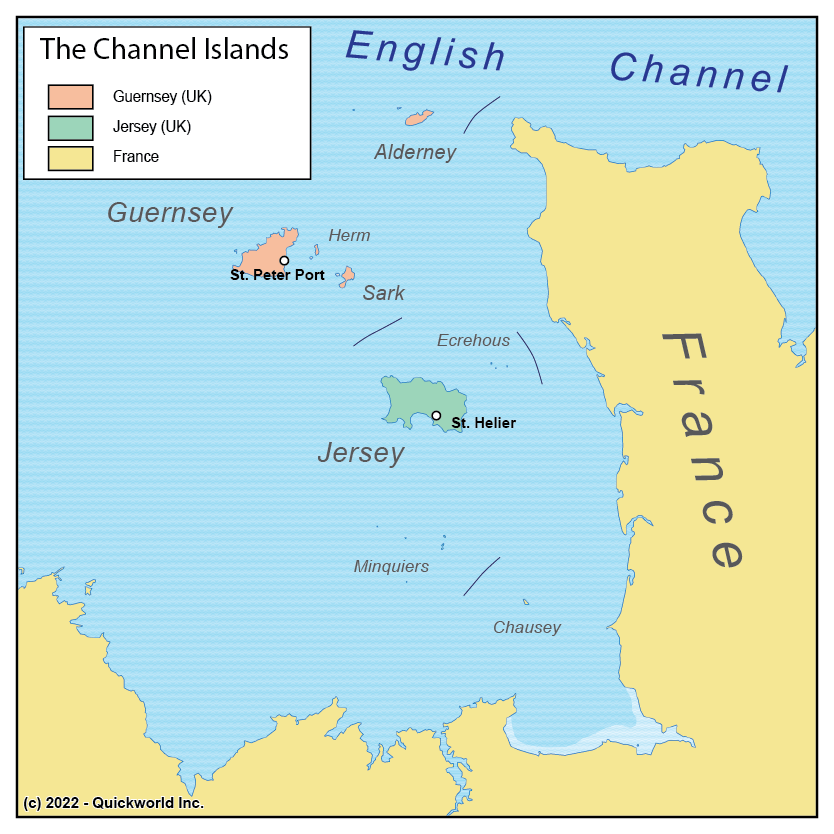Our Series on Autonomous Territories focuses on the Channel Islands, two autonomous territories off the coast of France that are dependencies of the Britsh Crown, though not part of the United Kingdom.
The islands of Jersey and Guernsey were part of the Duchy of Normandy, an entity that was under the sovereignty of the Kingdom of France. When the Duke of Normandy became King of England in 1066, he kept his continental possessions. This created tensions between the two kings and, in 1204, Phillip II of France invaded Normandy and made it part of the Royal Domain. For some reason, the two islands were not included in the transfer of sovereignty, and so they have remained for over 9 centuries as fiefdoms of the Duke of Normandy who, as far as Great Britain is concerned, is the monarch of England.
As of 2022, the two states of Jersey and Guernsey are self-governing territories. English is the de facto language, but local French dialects are still spoken and are part of the ceremonial life. Jersey is a single island entity - albeit with several outlying islets with no permanent population, while Guernsey also hosts several islands (Alderney, Serk, Herm, Jethou...) who enjoy a great level of autonomy.
More on Jersey and Guernsey
The Channel Islands in 2022


